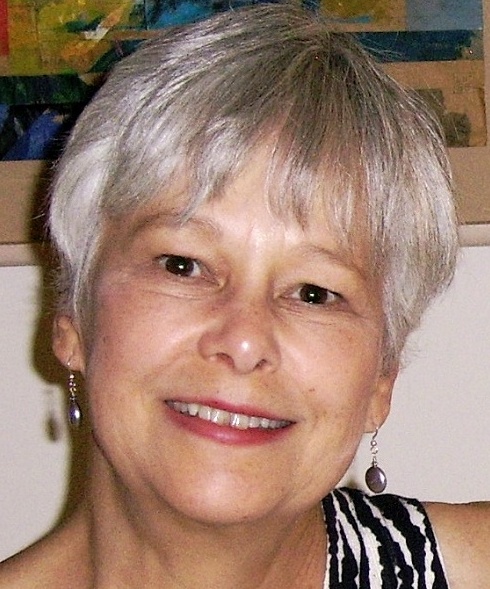
March 2, 2018
Waiting
by Beverly Offen
A poster of a Morris Graves painting hangs over my desk. It shows two vases with flowers that could be fresh or dried. It’s unclear if there is water in the vases. It’s a peaceful moment, a moment in which one could live or die, surrounded by beauty.
After less than a year’s illness, my husband is dying. I know there are no answers I want to hear, and so I no longer ask questions. Time has stopped moving forward and is waiting for what will certainly happen. The flowers in the painting have also paused, their fading beauty poised on the invisible intersection of life and death.
Sitting at my desk, I watch and wait with the flowers. Only then am I not alone.
I can no longer speak with my husband. Our realities diverged long ago, and he will not talk about what I know is the truth. We are left with only the daily facts of food and when I will be with him and when I will leave. His curtains are never opened, and his day and night have merged. I sit quietly and hold his hand and wait.
Friday evening he asks if I would read to him. The only books I have with me are about death and grieving. I tell him that I’ll bring Randall Jarrell’s The Animal Family when I come to visit him on Saturday morning. “It’s about making a family,” I say. “A hunter meets a mermaid and gradually they add a bear, a lynx, and a little boy to their family. It’s a children’s book, but it’s a beautiful story.”
“Yes,” Ron says. “You liked that book. That would be good.”
But on Saturday, Ron is in a semi-conscious state. He has begun refusing food and medication. He doesn’t speak and is agitated for the first time. He keeps putting his hand to his head, where the tumor is. I never open my copy of The Animal Family.
When I entered his room this morning, the first thing I saw was Ron’s wedding ring lying on the hospital table next to his bed. At first I was upset. Why had he taken off? Was he rejecting me?
Finally I decided that he was saying good-by and giving me his ring was a promise that he would always be with me.
A year before, when Ron was well, he wrote a poem for me that he titled “Last Words.” The final stanza of the poem reads:
But, love, there’ll be no question when I go,
Whatever else I may have time to say,
The last word of my last three will be “you.”
Sitting with him during that long Saturday, I began to think about the poem. I didn’t believe he would speak again and I couldn’t remember the last words he’d said to me when I left on Friday night. I had been careless and I had lost him forever. I never cried when I was with Ron because I knew it would upset him. But now, when he wouldn’t know, I cried, for all the mistakes I had made and for the husband I was losing.
When I returned on Sunday morning, Ron was calm and sleeping. The hospice nurse visited for the first time. “It won’t be much longer,” she said. “Maybe a few days.” The afternoon was quiet; there were no visitors. Over the past few months, Ron’s voice had become hoarse and indistinct; it was difficult to understand what he was saying. Now he was breathing softly, but making no attempt to talk. Suddenly, in the middle of the afternoon, Ron said, in a clear distinct voice, sounding just as he had before he became ill, “I love you.” Then he said, “I love you” again. Those were his last words.
On Monday, the day he died, his son, Eric, was with me, and we talked quietly and waited. In the late afternoon, Eric said he was going out for a few minutes. I sat on the bed, close to Ron, and put my arms around him. I began whispering to him. “I love you, sweetheart. I’ll always love you. You don’t have to worry about me. You don’t have to hold on any longer. I’ll never forget you. I’ll love you forever.”
I heard him breathe once, and then there was a pause, and then he breathed again and then he stopped. I continued to hold him. His eyes were closed, and his face was warm.
When I returned home, I looked at the poster of the flowers. They will never have to die, I thought. Or maybe they have already died.
Or perhaps they are at peace, surrounded by beauty, in a place where life and death no longer matter.

Write City Ezine is currently closed to submissions. See submission guidelines for further information.
Affiliates/Partners
Testimonials
Contact
Join CWA
Member Profile
My Account
Writers Conference
Presenters
Agents and Publishers
Pitch Sessions
Sponsors
Scholarships
Speaker Registration
Book of the Year
Spirit Award
First Chapter Contest
Resources
Home
Chicago Writers Association
info@chicagowrites.org
Make a Difference!

